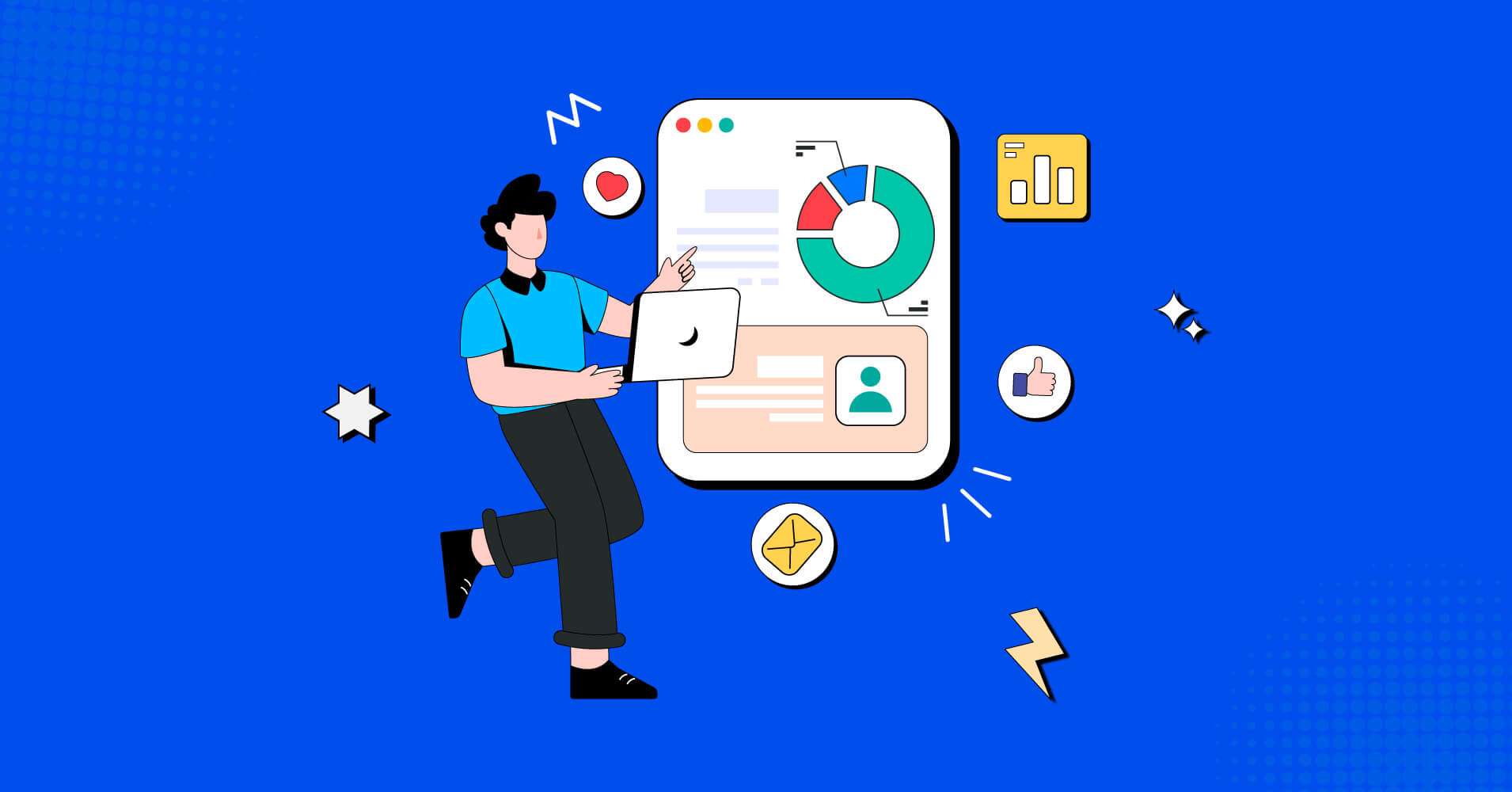
7 Marketing Automation Strategies to Streamline Your Marketing and Drive Business Success
Let’s face it: Juggling email campaigns, social media posts, and customer follow-ups manually is exhausting. Worse, it’s inefficient. If you’re still doing all of this manually, you’re losing time—time that could be spent growing your business!
That’s where marketing automation comes in. It’s not just a buzzword; it’s a game-changer.
But here’s the problem: Many businesses think automation is complicated, expensive, or just for big companies. That couldn’t be further from the truth. Today, I’ll show you how to implement smart marketing automation strategies that help you connect with leads, nurture relationships, and increase conversions—without adding to your workload.
Let’s dive in.
What is Marketing Automation (And Why Should You Care)?
Imagine a world where your email campaigns, lead nurturing, and customer follow-ups run like clockwork—even while you sleep. That’s the power of marketing automation.
Marketing automation streamlines repetitive marketing tasks like sending follow-up emails, segmenting audiences, and tracking campaign performance. Instead of manually managing every touchpoint, automation ensures your audience gets the right message at the right time—without you lifting a finger!
The result?
- More leads without increasing ad spend
- Higher conversions through personalized messaging
- Better customer relationships thanks to timely follow-ups
- More time to focus on big-picture growth
Now, let’s talk about the key components of marketing automation.
The Key Components of Marketing Automation
A robust marketing automation strategy is built on several critical components:
- Automation Workflows: These are the backbone of effective automation. By creating sequences for repetitive marketing tasks—such as sending automated follow-up emails based on customer behavior—you ensure that each lead receives timely and relevant content.
- Email Marketing Automation: Automated email campaigns help boost click-through rates and conversion rates by delivering personalized messages and dynamic content tailored to specific audience segments.
- Customer Relationship Management (CRM) Integration: Integrating your automation tools with CRM systems provides a 360° contact overview, enabling informed decisions based on customer behavior and insights.
- Analytics and Reporting: With data-driven decisions at the heart of every successful strategy, tools like Google Analytics and advanced reporting features help you track key performance indicators (KPIs) such as conversion rates, return on investment (ROI), and campaign performance.
Developing a Successful Marketing Automation Strategy
Define Your Business Goals
Before automating anything, ask yourself
- What are you trying to achieve? (More leads, higher conversion rates, improved customer retention?)
- What tasks are slowing you down? (Emails, social media interactions, customer support?)
- How will you measure success? (Click-through rates, conversion rates, customer lifetime value?)
Having clear objectives ensures your automation efforts are aligned with business goals and key performance indicators (KPIs).
Understand Your Audience
Your customers aren’t all the same. Segment your audience based on behavior, interests, and needs. Ask yourself—
- Buyer Persona: Who are your customers? What problems are they trying to solve?
- Customer journey mapping: What key touchpoints do they interact with?
- Customer segmentation: Group your audience based on demographics, behavior, and engagement levels.
Segment your email marketing automation to send personalized messages. A fitness brand might target “Yoga Beginners” with free guides and “Gym Veterans” with advanced gear discounts.
Automate Personalized Customer Journeys!
Your marketing automation strategy should guide leads from awareness to purchase seamlessly.
- Welcome & Onboarding Emails: Engage new subscribers with a warm introduction.
- Lead Nurturing Sequences: Send follow-up emails based on customer actions.
- Behavior-Based Triggers: Use automation workflows to respond to customer behavior in real time.
- Re-Engagement Campaigns: Bring back inactive users with personalized content.
The key? Timely engagement that feels natural—not robotic!
7 Marketing Automation Strategies to Supercharge Your Business
Marketing automation strategies may vary depending on business types, sizes, and purposes. While some businesses might need all the tools and strategies of marketing automation to get better results, implementing a few strategies is enough for some. Here are the most effective marketing automation strategies that can supercharge your business:
Welcome New Subscribers with an Automated Email Series
First impressions matter. When someone joins your email list, they’re showing interest in your brand. But if you don’t engage them immediately, that interest fades. So instead of sending a generic “Thanks for subscribing!” email, set up a welcome email series that:
- Introduces your brand (Who are you? What do you offer?)
- Delivers immediate value (Maybe a free guide, discount, or exclusive content)
- Guides them toward the next step (Signing up for a demo, following you on social media, or joining a community)
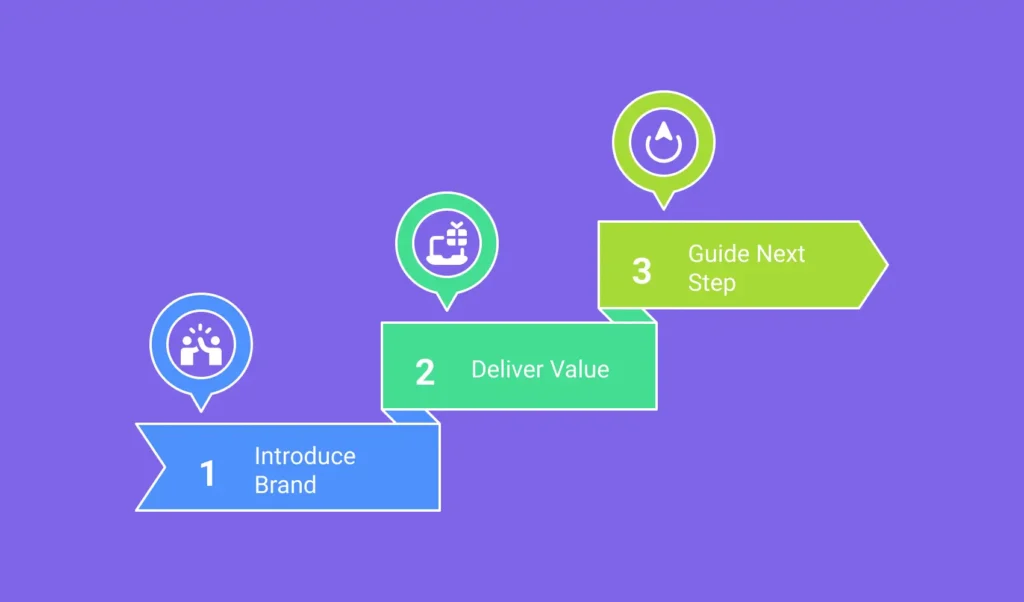
Pro tip: Personalize these emails based on how they subscribed. Someone who signed up for a freebie should get different content than someone who browsed your product page.
Segment Your Audience for Personalized Campaigns
Not all subscribers are the same. Some are ready to buy, while others are just learning about your brand. Sending the same email to everyone? That’s a sure way to lose engagement!
With segmentation, you can group your audience based on behavior, interests, or stage in the buyer’s journey. For example:
- New leads: Send educational content to build trust
- Engaged subscribers: Share case studies and testimonials to nudge them toward a purchase
- Inactive contacts: Send re-engagement emails with special offers or surveys
The more relevant your emails, the better your results. Studies show segmented email campaigns can drive 30% more opens and 50% more click-throughs than non-segmented ones.
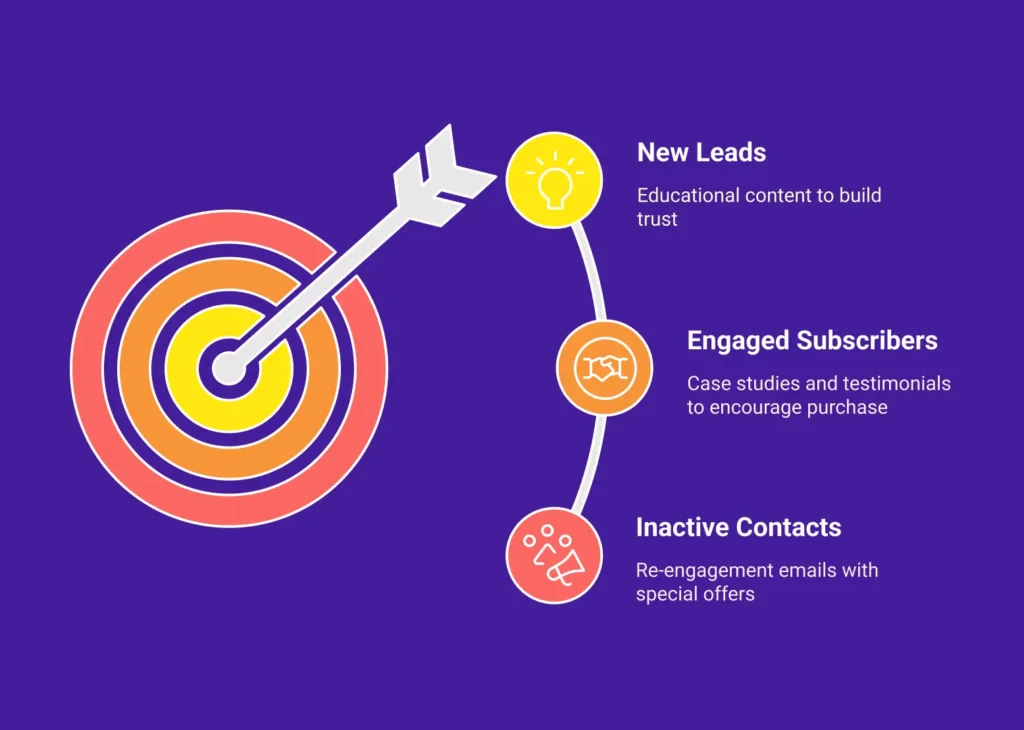
Automate Lead Nurturing to Convert More Prospects
Most people don’t buy on the first visit. They need multiple touchpoints before making a decision. But keeping up with every lead manually? Impossible!
That’s why lead nurturing automation is a must. Here’s how it works:
- A visitor downloads a free resource (like an eBook or checklist).
- They get a series of emails educating them on related topics.
- As they engage, they’re moved into a sales-focused email sequence.
- Once they’re ready, they receive a direct sales offer or a personal outreach!
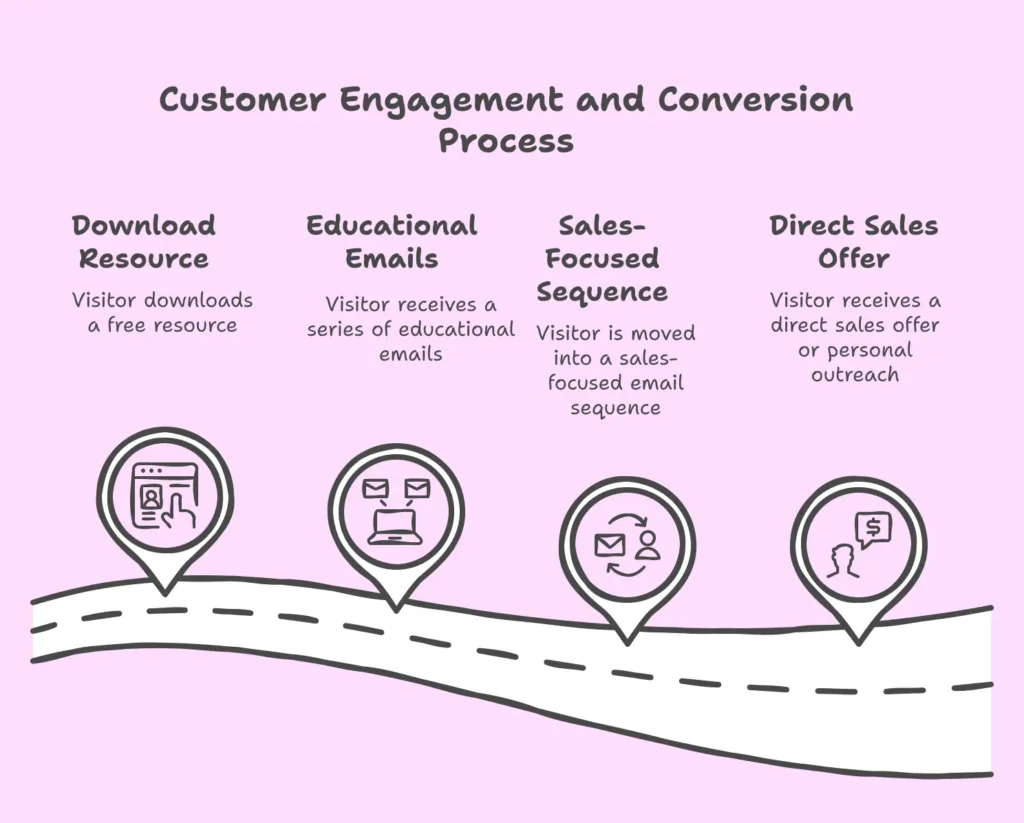
Set Up Automated Follow-Ups to Increase Conversions
Did you know 48% of leads never make a purchase because businesses don’t follow up? The problem isn’t lack of interest—it’s lack of consistency. Most sales require multiple touchpoints before a prospect takes action.
Instead of leaving money on the table, set up automated follow-up emails that:
- Remind leads about abandoned carts or unfinished sign-ups
- Check in with past customers to increase repeat purchase rate
- Offer limited-time promotions to drive urgency
Automation ensures you never miss a follow-up again.

Use Behavioral Triggers to Send Emails at the Right Time
Your audience is telling you what they’re interested in based on their actions. The key is listening and responding automatically. With behavioral triggers, you can send hyper-relevant behavioral emails based on what someone does (or doesn’t do). For example:
- Viewed a pricing page? Send a comparison guide.
- Watched 50% of your webinar? Follow up with related content.
- Clicked on a product link but didn’t buy? Offer a limited-time discount.
Why does this work? Because it’s timely and based on what they actually care about, not just what you think they want!
Set Up Customer Onboarding for a Better Experience
Customer experience doesn’t stop at the sale. If you want happy, long-term customers, you need to help them succeed with your product. An automated onboarding sequence can:
- Walk new customers through setup and best practices
- Answer common questions before they become frustrations
- Encourage engagement with tutorials and feature highlights
The result? Higher retention, fewer refunds, and better word-of-mouth marketing.
Measure, Optimize, and Improve
Marketing automation isn’t a “set it and forget it” system. The best campaigns constantly evolve. Track these key metrics to refine your automation:
- Open rates & click-through rates: Are people engaging with your emails?
- Conversion rates: Are leads turning into customers?
- Unsubscribes & complaints: Are you sending too many emails or irrelevant content?
Use this data to tweak subject lines, test new email sequences, and fine-tune your messaging for better results.
Final Thoughts
Marketing automation isn’t about replacing human connection—it’s about enhancing it. When done right, it allows you to build relationships at scale, nurture leads effortlessly, and increase conversions without extra work.
The best part?
You don’t need to be a tech expert or have a huge budget to get started. You can get started with our WordPress email automation tool for as low as $129/year! So go ahead and start with one or two simple automations, measure your results, and gradually expand from there. Your business deserves to grow, and marketing automation is the smartest way to make it happen.
Cheers!
Sakhawat Showrabh
From writing poems and short stories to writing technical stuff about WordPress and email marketing, plenty of things have changed. What didn’t change is my love for writing and wasting time. When I am not writing, I waste my time peacefully.



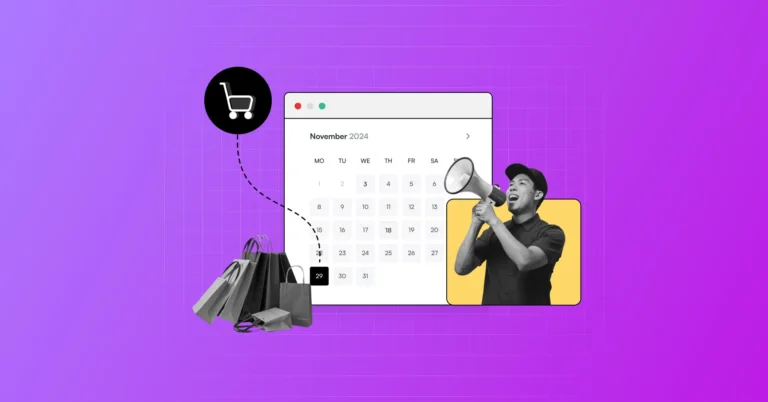
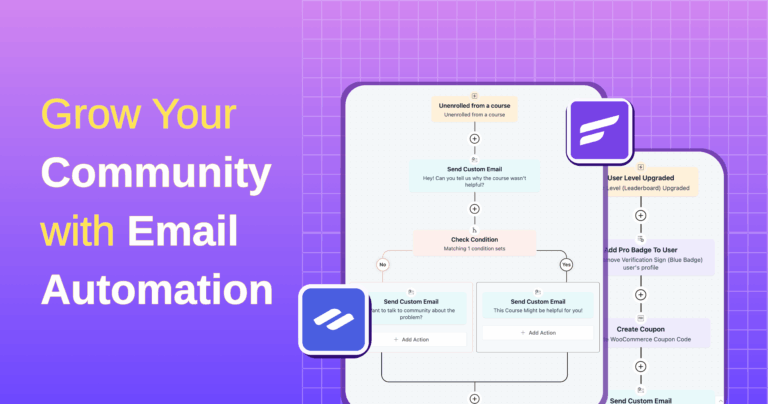
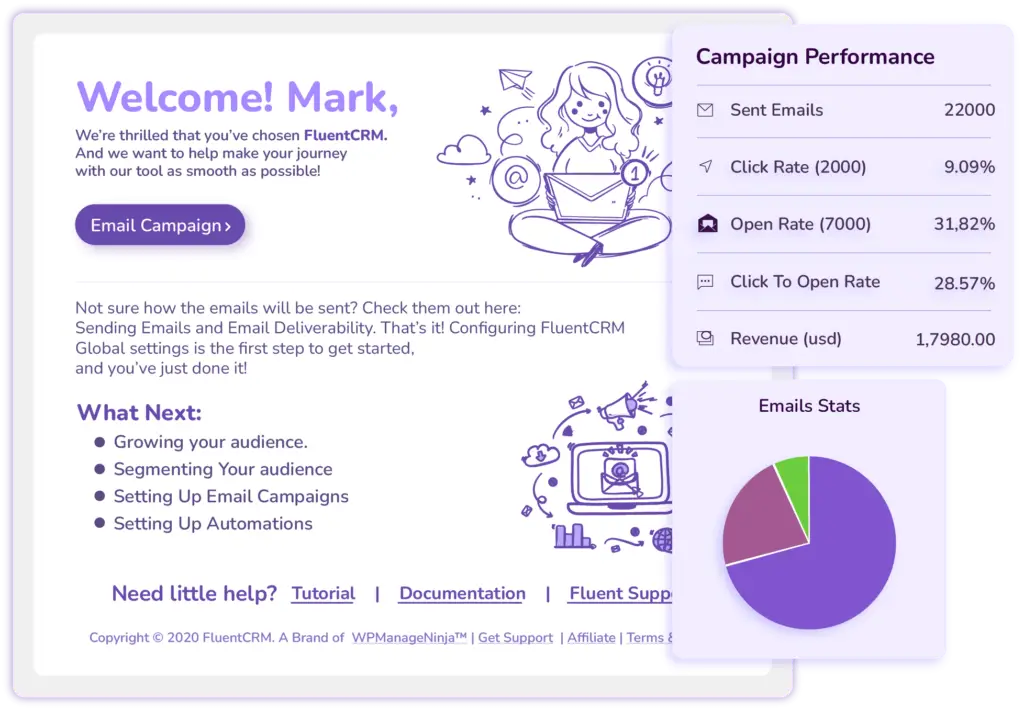
Leave a Reply